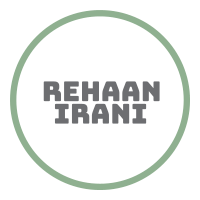In the novel, Homefire, one of the main characters, Isma, chooses to report her brother to the authorities after he decides to join ISIS. The author, Kamila Shamsie, illustrates the reality of such a decision through the subsequent conflict with her family as Isma puts her country first. The question is, however, where should Isma’s loyalty lie? Can there be a correct moral decision when faced with the impossible choice between family loyalty and duty to society?
There are two sides to this situation. As a sister, Isma has a duty to protect her family, especially her younger siblings and in this case, Parvaiz, her younger brother is in the wrong. At the same time, Isma has a duty as part of a society and her moral obligations to inform the authorities of threats to the country. If we approached this situation using a deontological approach, Isma should tell the authorities as the ends do not justify the means. In this sense, she has a duty to do what is right ethically and given that ISIS is a designated terrorist organization, it is clear that joining them is a very wrong move. Hence, she should report this action even though she is reporting her brother.
On the other hand, looking at a teleological approach, the ends do justify the means. It is a results-orientated approach to ethics. Given that Parvaiz is family, despite joining ISIS, Isma would know him as a brother and that he would never want to cause harm. But the only reason he joined was out of the curiosity of his father’s footsteps. If Isma knew this and understood that the result of Parvaiz joining ISIS wouldn’t actually cause any harm, then it would make sense to not report him as the consequence would be nothing. But the consequence of reporting him stripped Parvaiz of his citizenship.
The most troubling part, however, is that even after Parvaiz wanted to leave ISIS, Isma still disregarded him which goes against not only a teleological approach to ethics but also a deontological approach. This is because the result of helping Parvaiz would mean him coming home and living as a better person in a better life. This is also ethically right as no one deserves to be in a situation where they want to do good but are forced out of their own home.
In conclusion, I don’t agree with what Isma did because if it was my family, I wouldn’t report it. My reasoning is that I was born and raised by my family and at the end of the day, they are the ones who are going to have my back. So why shouldn’t I have theirs?


Recent Comments